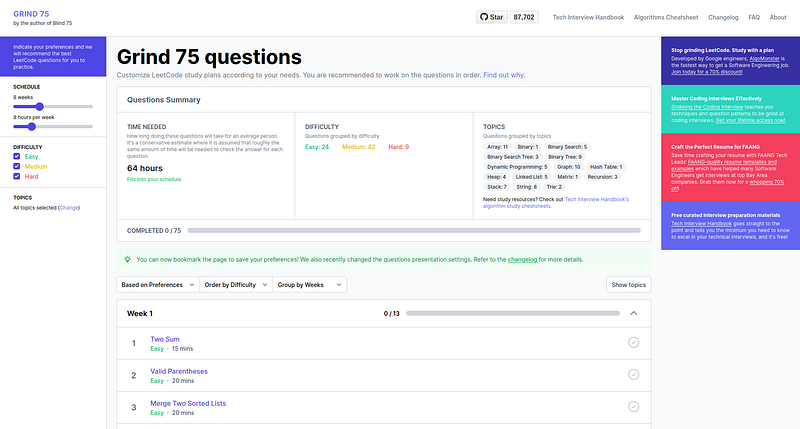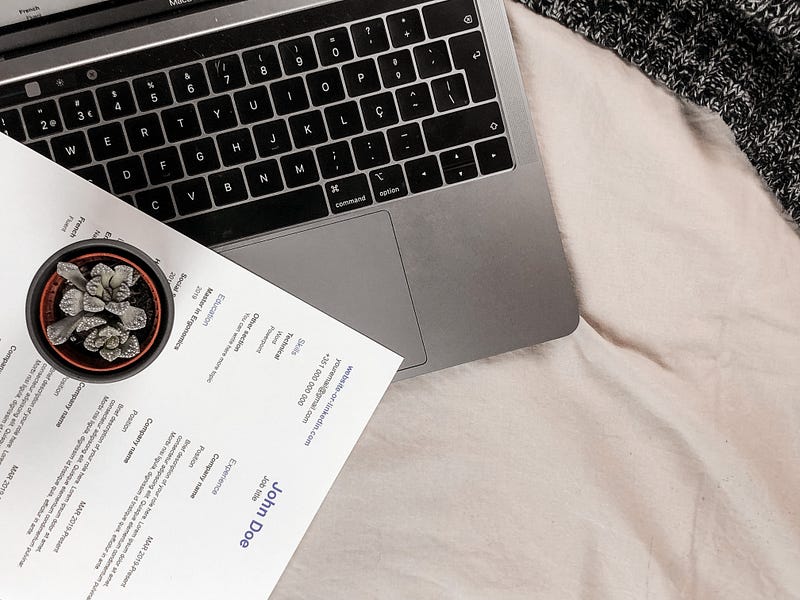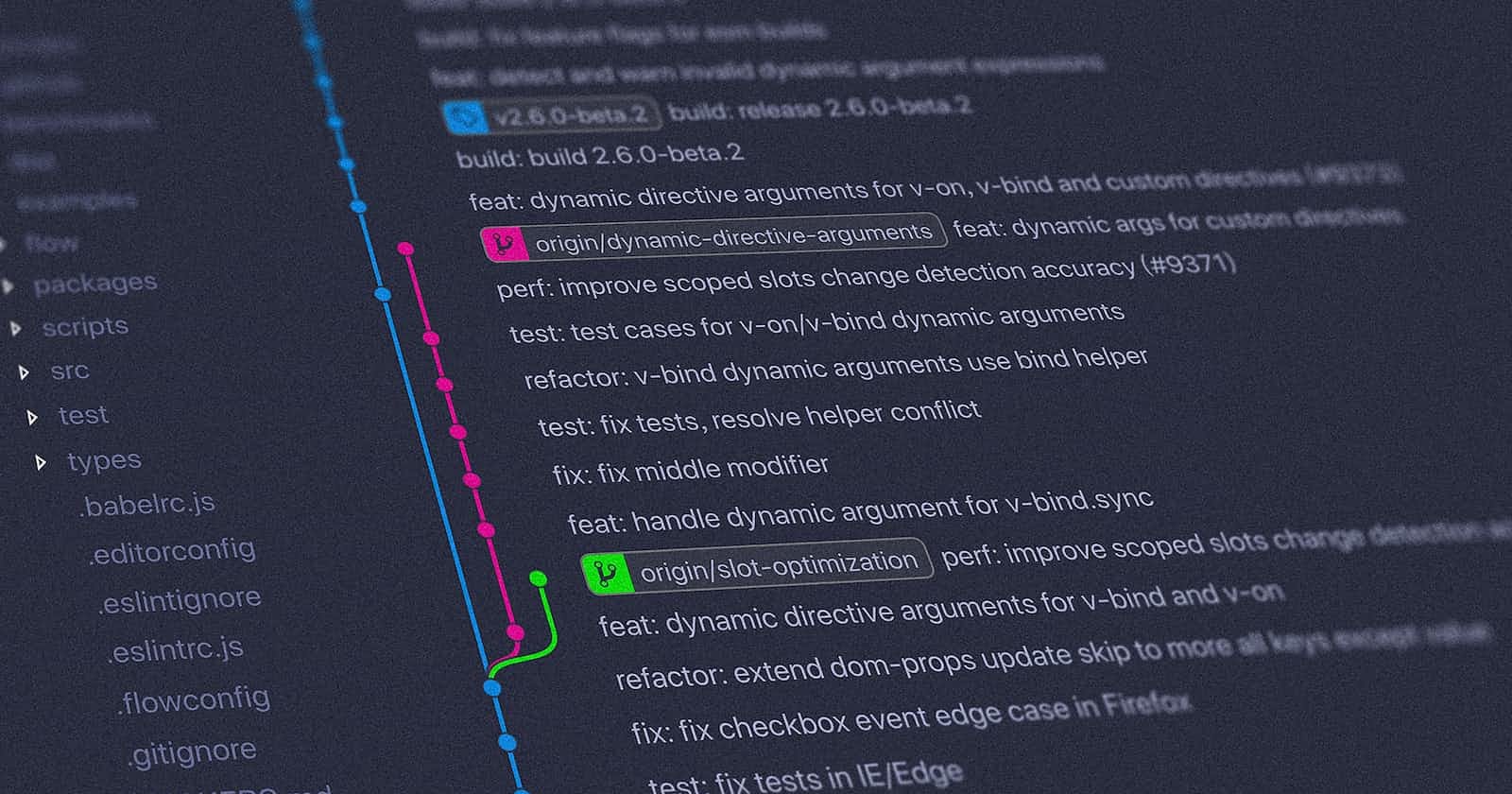Resources & Tips for getting your first Tech internship
With the recent turbulence going on in the Tech space, it’s no surprise that getting an internship is tougher than ever. After going through it all this year — and coming through the other side successfully, I felt the need to share my experience, in order to help people get their foot in the door.
Here are my tips to maximize your chances of getting the internship you want and starting your career:
Use the right resources for you
It’s well known that a lot of companies give out LeetCode-style interview problems, and unless you’re into competitive programming as a hobby, I feel that the only way to do well in these interviews is practice, practice, and more practice.
However, I always found the learning process to be rather confusing — If you go the brute-force route, and try problems at random, you’re more than likely to get stuck. Oftentimes, to be able to solve a certain problem, you'd need previous knowledge that you would have learned from another problem.
I cannot overstate how much it has helped me to have found a resource that takes the guessing out of the equation and just lets me focus on building a solid knowledge base.
Even better, it’s free, and you can customize it to your time frame and needs!
Grind 75
The Blind 75 is a list of the 75 most asked LeetCode problems. They cover an array of common problem-solving techniques and are ordered incrementally, so the jump in difficulty from one problem to the next isn’t as steep.
Finding out about this resource was a game-changer for me. My university’s focus was more on competitive programming and less on interview-style questions, therefore I came out with a sort of fear of not being good enough to solve the more difficult problems.
However, it turns out I just needed a more consistent, guided approach to learning, and this was it for me.
What is more, the author of Blind 75 has expanded the list and built a nice website called Grind 75, which allows you to customize your learning plan based on the time frame you have and the number of hours a week you can put into learning.
I used the default settings though. If you have a lot of time ahead of you, it might be worth it to go through the extended list.

If you feel it doesn’t click with you, there are other similar compilations and paths you can try — NeetCode 150, HackerRank Interview Preparation Kit, et. al.
My point is, try to find a structured approach to learning, don’t go in blindly, or you’ll just stumble around in the dark.
Reduce friction when applying to jobs
Applying for jobs is hard work as it is — therefore, taking a few steps to make your experience smoother can go a long way, and reduce some of the stress.
Build an easy-to-maintain resume

My first resume was a modified Europass template that I had beaten into submission, for lack of a better word. It was pretty to look at, but updating it was a nightmare, as the spacing would mess up and I’d have to fix it by hand.
My life changed for the better when I learned about LaTeX — a markup language used for writing documents. It has lots of uses, from being able to control typesetting and spacing programmatically, to generating complex math notations and representations using its syntax.
What is more, Overleaf provides an easy-to-use online IDE and previewer so you can see the output of your page update as you code.
I would encourage you to build your own resume template, it’s a great exercise, and it would make you stand out from the crowd. Even better is that you can add a new skill to your resume when you’re all done :)
If you’re short on time, you can benefit from Overleaf’s large library of templates available. For reference, this is the one I used, credits to Stefan for making it publicly available.
Despite learning a new language being a bit of a time investment, I feel it pays off, as you can keep a master resume with all of your projects and experience. Generating tailored resumes, a task that used to take me hours, is now a matter of commenting out code blocks.
Save everything you write
Another way to ease your job application experience is to make sure you save a copy of every text you write — every answer to open ended-questions (such as Tell us about your favorite project or Why did you choose to go into Tech?), as well as the research you do on every company.
This has multiple benefits. Firstly, it’ll be much easier to refresh your knowledge of the company before the interview. Secondly, it cuts down on the research you’ll have to do the next time you apply to the same companies. Finally, you can use parts of your previous writings as references when applying to other job posts, saving you time without compromising on personalization. All you have to do is keep a folder or document with all your texts.
All in all, these tips should help make your job application process a little easier.
(I am not sponsored in any way, and all opinions here are my own.)
Conclusions
These are some of the takeaways I got out of this job application season that I feel are a bit lesser known and could, hopefully, make a difference for you, as they did for me.
I hope this was helpful for you, and if it was, consider dropping this article a ❤ :)
Author’s note
After half a decade of hiatus, I decided to get back into writing.
If this is the first time I show up on your corner of the Internet, hi! I'm Nicoleta, a programming enthusiast. I write about the various things I discover in my journey through tech, from more technical articles to subjects that are adjacent to the field, such as the article you just read.
My next article is going to be about things you can do outside the job application season to better your resume and better navigate the tech world.
If this sounds interesting to you, consider following me :) You can find me on my personal blog. And I hope to see you again soon!


